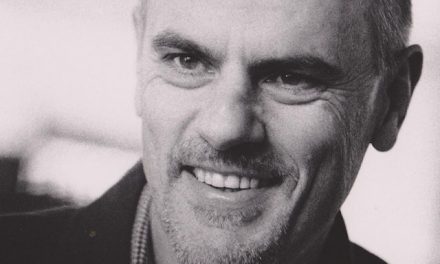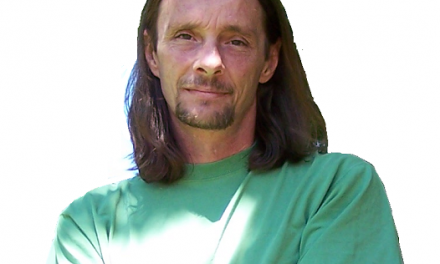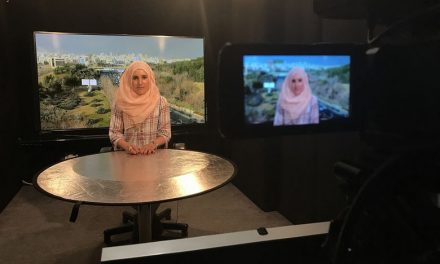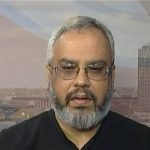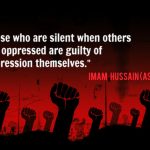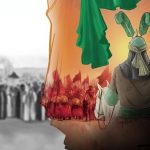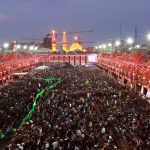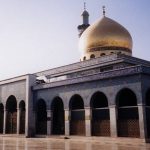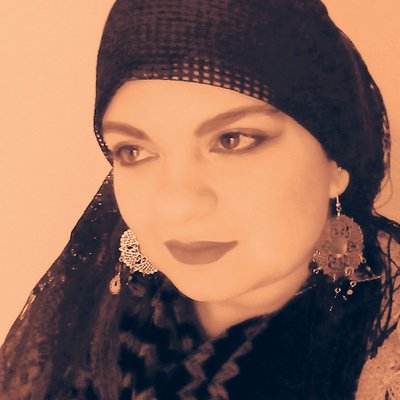
Shia Followers has conducted an interview with Ramona Wadi, a journalist and pro-Palestinian activist, to discuss the Israel’s atrocities against Palestinians and U.S. President Donald Trump’s recognition of al-Quds (Jerusalem) as Israel’s capital.
“The Palestinian Authority (PA) remained shackled to its passive diplomacy, waiting for Trump to voice his recognition,” she told Shia Followers.
“Later, it feigned anger and called for Palestinians to demonstrate against the decision. Behind the scenes, however, collaboration continued unhindered.”
Here’s the full transcript of the interview:
Shia Followers: How would you analyse Washington’s recognition of al-Quds (Jerusalem) as Israel’s capital? Would it finally bring “a lasting peace” in the region?
Ramona Wadi: U.S. President Donald Trump employed a strategy of speculation over Jerusalem until his unilateral declaration of the city as Israel’s capital. Throughout that period, the focus was more upon the speculation itself, rather than what Israel was achieving during that timeframe. The Palestinian Authority (PA) remained shackled to its passive diplomacy, waiting for Trump to voice his recognition. Later, it feigned anger and called for Palestinians to demonstrate against the decision. Behind the scenes, however, collaboration continued unhindered. We have a situation where Jerusalem has been exploited by Israel, the PA, the U.S. and the international community, in a way which has benefited the colonial enterprise. Trump has merely exposed the intent of the U.S. – the only novelty is that there is no longer a hidden motive as regards this fragment of U.S. foreign policy.
The decision has also exposed the PA’s refusal to safeguard Palestinian rights. Even after the leaked U.S. plan which prioritised exclusive ownership of Jerusalem by Israel, Mahmoud Abbas is still accepting the U.S. as a partner in negotiations. The PA’s collaborative stance is necessary for its survival, although that is also dependent upon Israel’s decisions. As colonial expansion continues, the PA’s dominance will continue to diminish until its role will be confined, even more than it is now, to that of an authoritarian government dependent upon Israel’s plans.
Of course the decision will not bring a lasting peace – it is an affirmation of aiding Israel’s colonial expansion. Yet to continuously amalgamate Jerusalem to peace in the region is hindering Palestinian aims, I believe. As much as Jerusalem is important for the region, if Palestinian anti-colonial struggle is to succeed, it cannot afford to frame Jerusalem within a regional context at the expense of neglecting its importance as part of Palestine itself. One thing to keep in mind is that there is no unified rejection of U.S. and Israeli motives in the region due to vested interests from both ends.
How should Muslims react to this?
Ramona Wadi: I do not think it is an issue of how Muslims should react. The UN has institutionalised Jerusalem despite claiming it to be a question of international consensus. It is more a question of understanding how colonialism, supported by international institutions, has managed to create and maintain political divisions which then affect the dynamics of societies. It is easy to create a question of ownership over Jerusalem as a reaction to the moment. These however, are always limited due to being a mere reaction to political provocation. There should be a consistent approach to supporting Palestinians over Jerusalem but this is not happening. Not only is the consistency absent, but its absence is not helping Palestinians beyond the temporary media attention that such protests attract. Unfortunately, Jerusalem is running an identical risk as other causes – it is only guaranteed a sliver of attention depending upon need and eclipsed when another violation occurs. The reason is that reactions do not constitute a comprehensive, political approach that targets colonialism.
Is there unity among Muslims (Shias and Sunnis) regarding the Palestinian struggle?
Ramona Wadi: There are several levels of isolation and fragmentation which have to be addressed before one can speak of unity. What stands out particularly in the case of Palestine is the accusations traded regarding exploitation of the cause, to the extent that reinforcing division is obstructing the possibilities for unity. There is little point in speeches calling for Muslim unity when, away from opportune rhetoric, governments are still pursuing divisive agendas. Uniting against Trump’s unilateral recognition of Jerusalem as Israel’s capital, for example, was a mere exercise in vague rhetoric when the majority of Muslim governments are not severing ties with Israel.
What practical measures should be taken to force Israel into ending its violence against Palestinians? What is the pro-Palestinian non-violent movement – the Boycott, Divestment and Sanctions (BDS) movement – doing in this regard?
Ramona Wadi: The BDS movement has achieved some successes to the point that it has irked Israel into conceptualising and implementing a boycott of its own, not to mention censorship, blacklists and travel bans. If it was not influential, there would be no reaction to the movement. This clearly shows a divide between politics and public opinion when it comes to Israeli colonisation. The people are demonstrating knowledge and awareness; they are more forthcoming in their support for Palestine. On the other hand, the international community and the majority of governments persist in their overt, neutral or passive support for Israel. Upholding Israel’s security narrative at an international level is one form of support. Insisting upon the two-state compromise is another. Prioritising diplomacy and economic ties with Israel also aids in maintaining an imbalance to the detriment of Palestinians. It has come to a point where Israel is exploiting the concept of dependence – Israel and the international community are dependent upon each other. However, while Israel is manipulating this dependence to reach its aims, the international community is lingering behind using the tactics of observation, collaboration and condemnation. As a result, the discrepancies inflicted upon Palestinians become more pronounced – there is visibility due to public action and activism, including BDS, yet on a political level Palestinians are becoming increasingly marginalised, while Israel’s violence is normalised and as a result, allowed to expand as a direct reflection of colonial expansion in historic Palestine.
Months ago, New York State Governor Andrew Cuomo issued an executive order which punishes entities doing business with New York if they support the BDS. What’s your take on this? Do you regard this as a direct result of pressure from pro-Israel lobbies?
Ramona Wadi: In his 2016 op-ed in the Washington Post, Cuomo stated “New York stands with Israel because we are Israel and Israel is us.” The statement rings true in terms of collaboration between governments and it will be repeated according to what is perceived as necessity – which is dictated by Israel.
New Orleans recently passed a resolution “to take steps to avoid contracting with or investing in corporations whose practices consistently violate human rights, civil right or labour rights”. It is now being contested by Mayor-elect La Toya Cantrell, who seems to be backtracking from her initial support, stating that “the unintended impact does not reflect my commitment to inclusivity, diversity, and respect and support for civil rights, human rights and freedoms of all New Orleanians.” The rhetoric is different but in both there is an underlying trend of normalising Israel’s violence against Palestinians under the guise of security or human rights, while neglecting the fact that it is the Palestinians who should be worried about both issues.
Israel has monopolised the definition of what constitutes human rights, but this shouldn’t be seen in a vacuum. It is also part of the international context which approved and accepted Israel’s colonial project. If the international community was serious about justice, it would, through its institutions, differentiate between the exploitation and protection of human rights. Instead the UN has become a platform that promotes the violation of human rights to the detriment of the oppressed people.
Ramona Wadi is an independent researcher, freelance journalist, book reviewer and blogger specializing in the struggle for memory in Chile and Palestine.

